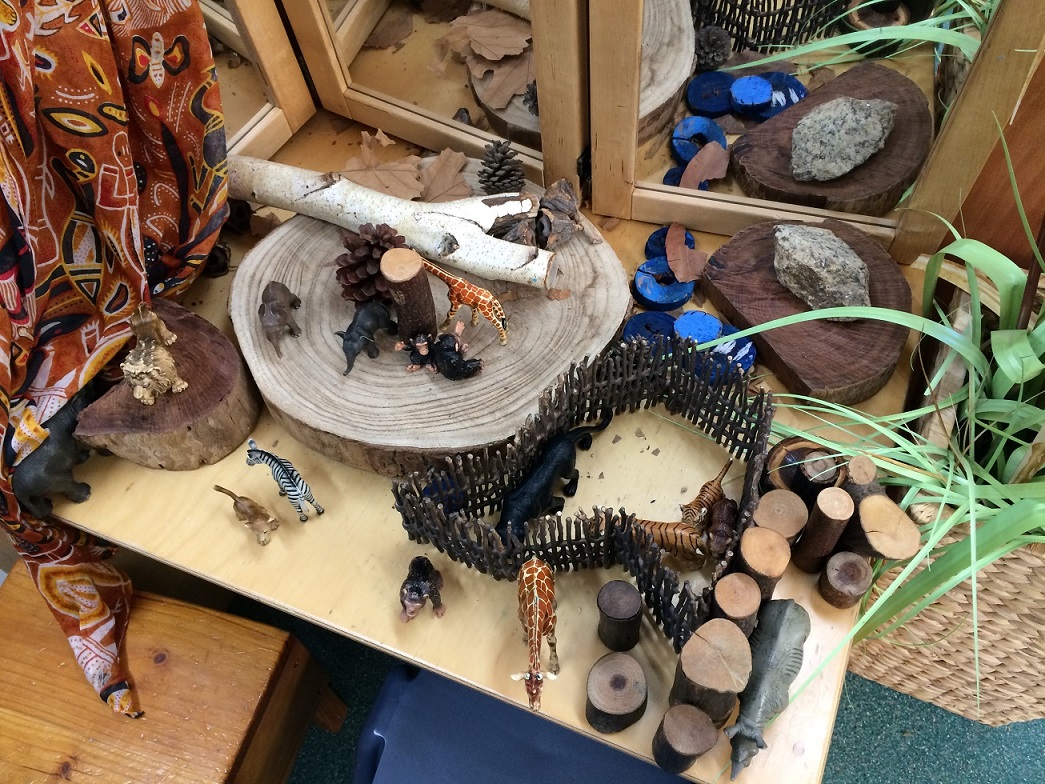
Shine Bright Woorinen South Kindergarten in Victoria
Alison and Chris from Shine Bright Woorinen South Kindergarten in Victoria have had a long term commitment to promoting the mental health and wellbeing of their learning community. Alison recently spoke with her Be You Consultant Cris about their family library.
Cris: Can you share what led to your focus on supporting families?
Alison: Yes we have had a long term commitment to promoting mental health and wellbeing in our kindergarten community. Many families were needing support for various reasons and this was affecting their mental health and wellbeing and impacting the children.
We were also having a high number of returning families, some of whom had mental health history. We had over time worked hard at establishing strong relationships with many of these families and it’s always a very satisfying feeling when families return.
I think gradually over time families are becoming, and have become, more comfortable, talking about mental health and wellbeing. The barriers are being broken down and we are all feeling more comfortable using the words mental health and wellbeing. We support families in a genuine and authentic way, respectful relationships develop and transform into partnerships.
Cris: How did you focus on identifying the strengths and opportunities to prioritise the learning community’s needs? Did the opportunities align with service Quality Improvement Plan goals?
Alison: When we identified the needs of our kindergarten community they easily fitted into our QIP, Philosophy, Service Goals, and our Performance and Development Plans. Promoting and supporting mental health and wellbeing is ongoing. It becomes embedded in your day-to-day practices and it becomes part of your pedagogy.
One of our Service Goals is to: 'To promote mental health and wellbeing with families, children and staff.’ Our Quality Area 6.1.3 is that ‘Families are supported: Current information is available to families about the service and relevant community services and resources to support parenting and family wellbeing.’
The notion of a parent library fitted nicely into this element and through providing resources which promote the interaction between parents and children we were able to support parenting and family wellbeing.
Another area we wanted to focus on was the strengthening of child/parent/family relationships and in doing so support and promote oral language development.
Our observations and documentation were telling us that there appeared to be a growing number of children whose oral language was still beginning to develop when they commenced Kindergarten/Preschool. This was impacting on the children's social and emotional wellbeing and as a result their mental health and wellbeing, particularly self-esteem and confidence.
Cris: How did creating a library sustain, complement and further contribute to children’s and families resilience?
Alison: We began asking the following questions:
"How can we better support our families, enhance their mental health and wellbeing and resilience?"
"What can we implement to further develop their understandings of, for example mental health and wellbeing or self-regulation?" and;
"How can we enhance the children’s oral language development? What can be done outside our service to strengthen children’s language and communication skills and in turn have a positive influence on their social and emotional wellbeing/mental health and wellbeing?"
A parent library would encourage families to use the resources and so enrich conversations with their children about their life, their feelings, and what is happening around them and ultimately build upon family relationships and support children to increase their understanding of their emotions. At the same time it would also create opportunities for conversation and oral language.
Cris: How did you make decisions about the resources you would include in the library?
Alison: We had no idea until we started looking and researching that there is a wealth of resources available. It was difficult to know where to start. We created a loose criteria. The resources needed to be short, readable, practical and for some interactive. Resources did not necessarily need to be books and we also included resources such as card sets, games and CDs for meditation, relaxation and yoga.
The resources were chosen to support the mental health and wellbeing of families, parents and children, to be used individually, as a family or with children. The resources were chosen to give families strategies, ideas, new information, knowledge, and to gain a deeper understanding.
The resources to use with children were chosen to promote conversation, opportunities for oral language development and of course support and strengthen relationships.
Cris: What plans do you have for the ongoing development of the library?
Alison: Evaluation will be important and a survey asking families about the resources, and other topics and areas that they would like included.
If you would like to learn more about how you can create positive relationships with families, explore the Be You Family Partnerships domain, or if you want to promote resilience in your learning community, start the Affirm module today.